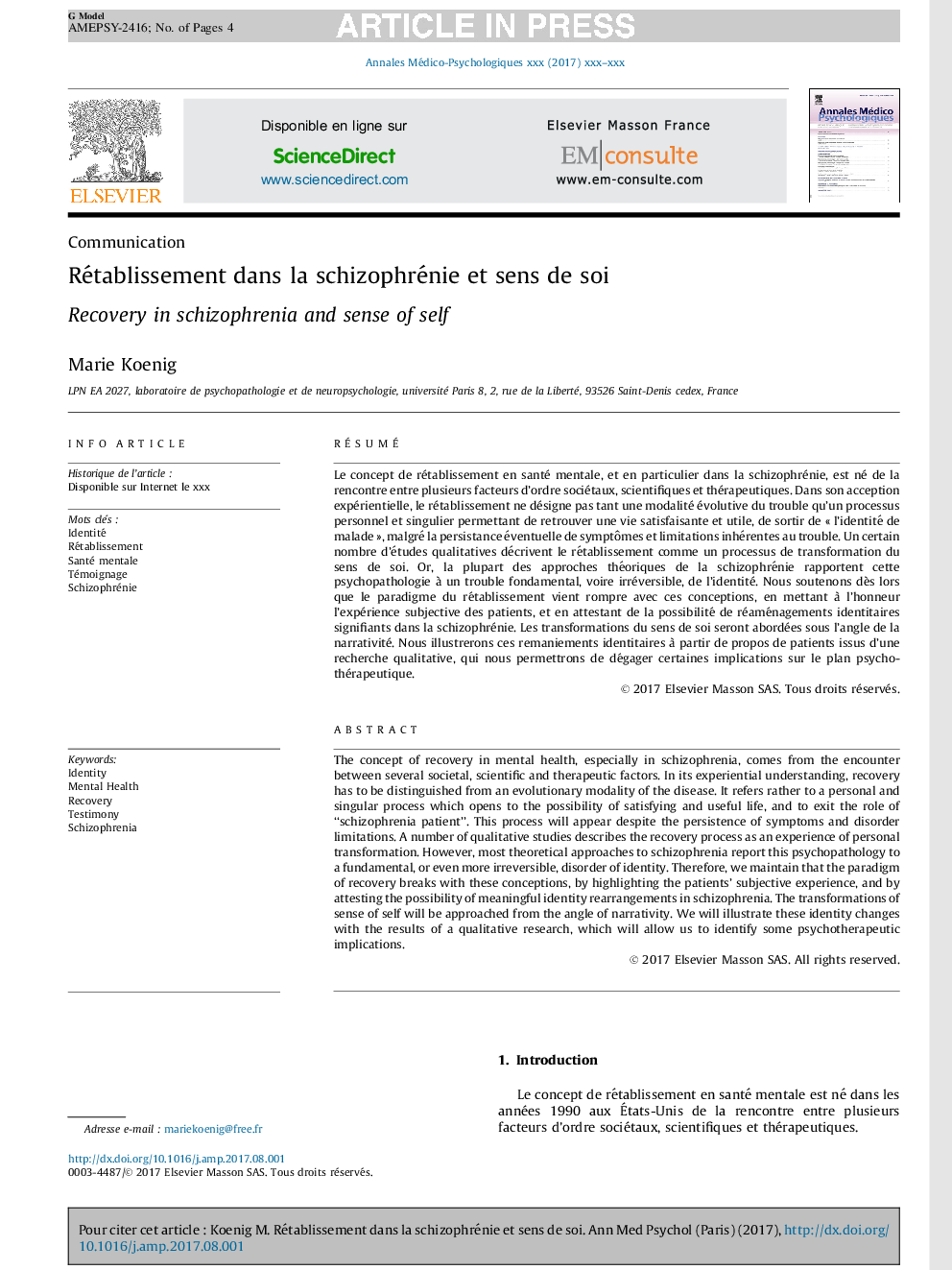| Article ID | Journal | Published Year | Pages | File Type |
|---|---|---|---|---|
| 6785681 | Annales Mdico-psychologiques, revue psychiatrique | 2017 | 4 Pages |
Abstract
The concept of recovery in mental health, especially in schizophrenia, comes from the encounter between several societal, scientific and therapeutic factors. In its experiential understanding, recovery has to be distinguished from an evolutionary modality of the disease. It refers rather to a personal and singular process which opens to the possibility of satisfying and useful life, and to exit the role of “schizophrenia patient”. This process will appear despite the persistence of symptoms and disorder limitations. A number of qualitative studies describes the recovery process as an experience of personal transformation. However, most theoretical approaches to schizophrenia report this psychopathology to a fundamental, or even more irreversible, disorder of identity. Therefore, we maintain that the paradigm of recovery breaks with these conceptions, by highlighting the patients' subjective experience, and by attesting the possibility of meaningful identity rearrangements in schizophrenia. The transformations of sense of self will be approached from the angle of narrativity. We will illustrate these identity changes with the results of a qualitative research, which will allow us to identify some psychotherapeutic implications.
Keywords
Related Topics
Health Sciences
Medicine and Dentistry
Psychiatry and Mental Health
Authors
Marie Koenig,
